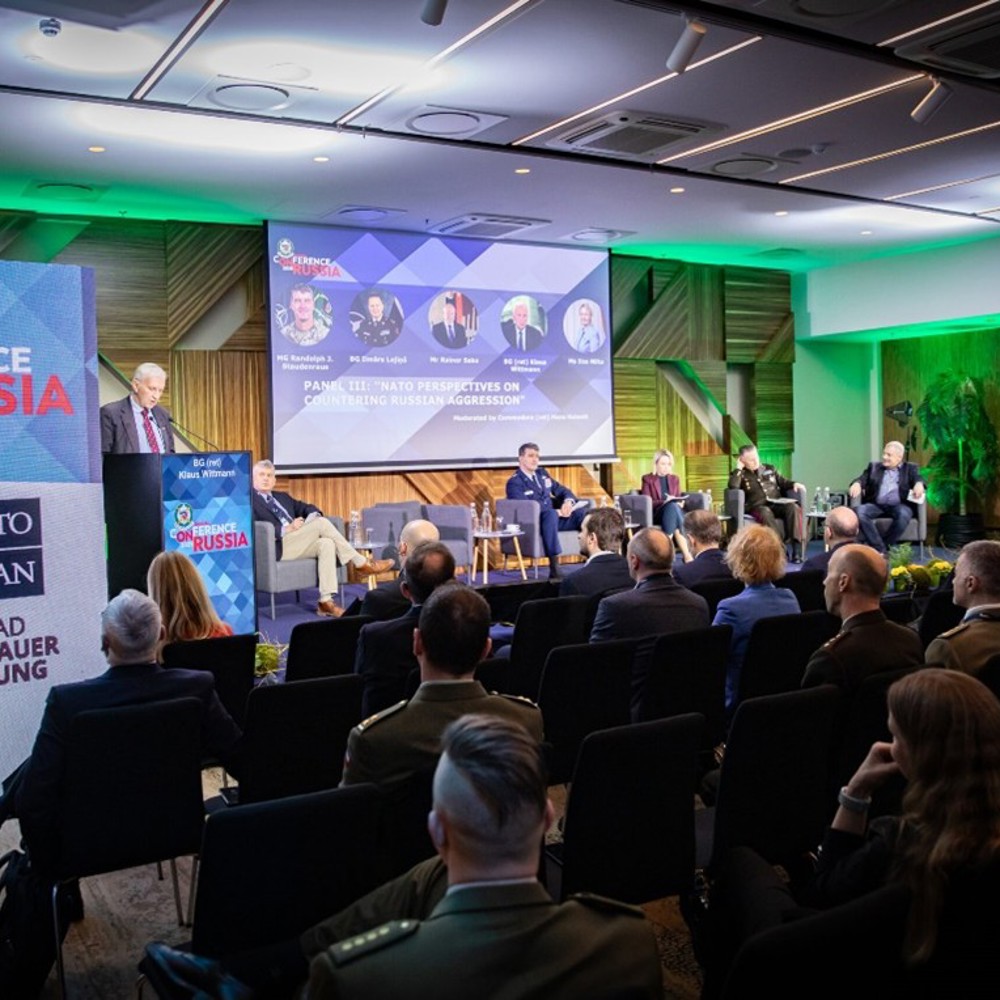The Defence Academy of the United Kingdom was recently represented at the Baltic Defence College’s (BDC) ‘Conference on Russia’ by Dr Ed Gosling from the Defence Leadership Centre (DLC).
The annual conference has been hosted in Tartu, Estonia, by the BDC since 2015 and attracts delegates from Baltic and allied military communities, national governments, academia and the private sector.
The purpose of the conference is to discuss the most pressing localised and global issues shaping Russia. Attendance at the conference presented a valuable opportunity for DLC to further develop connections with BDC, which began at last year’s DLC-run research workshop on NATO multinational leader development in London.
Despite this year’s focus on strategic pathways to peace in Ukraine being set several months ago, discussions were characterised by a sense of almost real-time immediacy in relation to the White House’s ongoing peace deal overtures to Russia and Ukraine, and indications of reduced future US defence support to Europe.
The two-day programme featured a series of panels that showcased a diverse array of defence sector luminaries including military and NATO commanders, European MPs and diplomats, academics and BDC staff and students. These focussed on key themes ranging from the role of Russia’s war economy in driving the conflict, to projections of Ukraine’s and NATO member nations’ capacity to meet the challenge of Putin.
Technological and social lessons from the ongoing conflict were also explored alongside the issues associated with crafting an acceptable peace agreement or building national resilience in preparation for possible escalation.
The panel discussions delivered an informative and focussed examination of the Russian invasion of Ukraine, recent events in the USA and the implications for Europe and the wider world. A charity dinner in support of Ukraine provided a further opportunity for networking and relationship building among delegates.
On his experience representing DLC in Tartu, Dr Ed Gosling reflected:
BDC’s Col (ret.) Dr Çlirim Toci, Lecturer in Defence Planning and Management, added:
Following the conclusion of the conference, bilateral conversations between representatives of the BDC’s Department of Leadership and Management Studies and DLC continue, and plans are already in development for future visits to Shrivenham and Tartu, including a return to the Conference on Russia in 2026.

